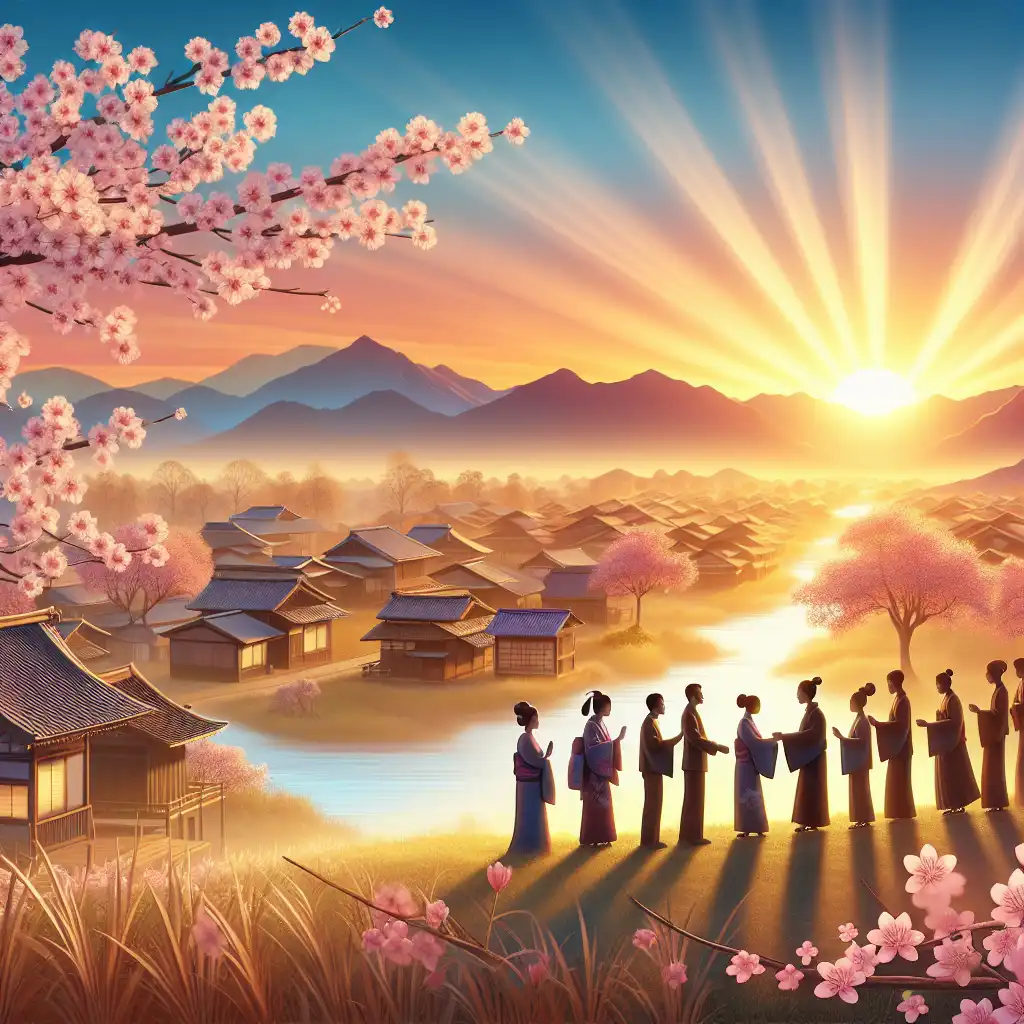
Asa
Time of Day
Understand that 'asa' indicates a specific part of the day when mentioned in a Japanese context.  Asa ni Nihon-go wo benkyou suru. (I study Japanese in the morning.)
Asa ni Nihon-go wo benkyou suru. (I study Japanese in the morning.)
Common Greeting
'Ohayou gozaimasu' often follows 'asa' as part of a morning greeting in Japan.  Asa ga kita, ohayou gozaimasu! (Morning has come, good morning!)
Asa ga kita, ohayou gozaimasu! (Morning has come, good morning!)
Cultural Context
'Asa' implies more than time; it can reference activities or feelings specific to mornings in Japan.  Asa ga suki desu, shizuka de utsukushii. (I love the morning, it's quiet and beautiful.)
Asa ga suki desu, shizuka de utsukushii. (I love the morning, it's quiet and beautiful.)